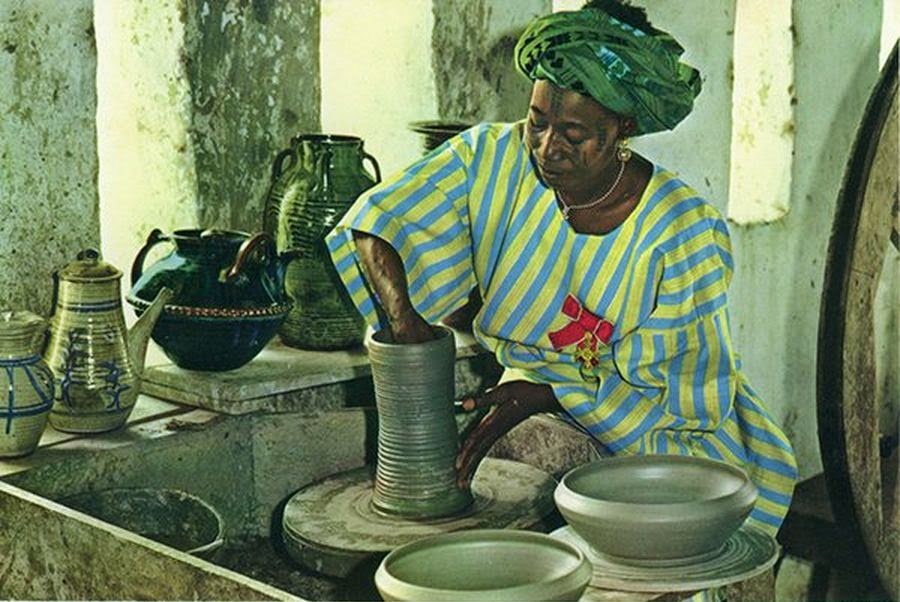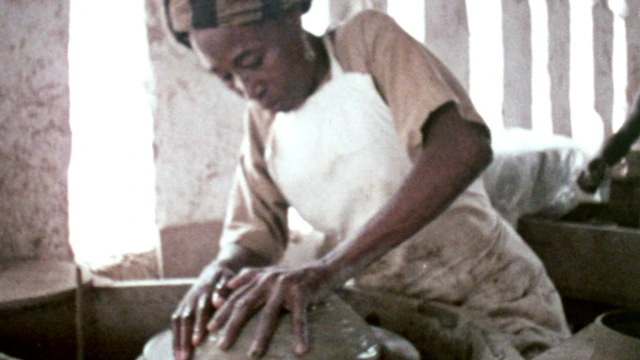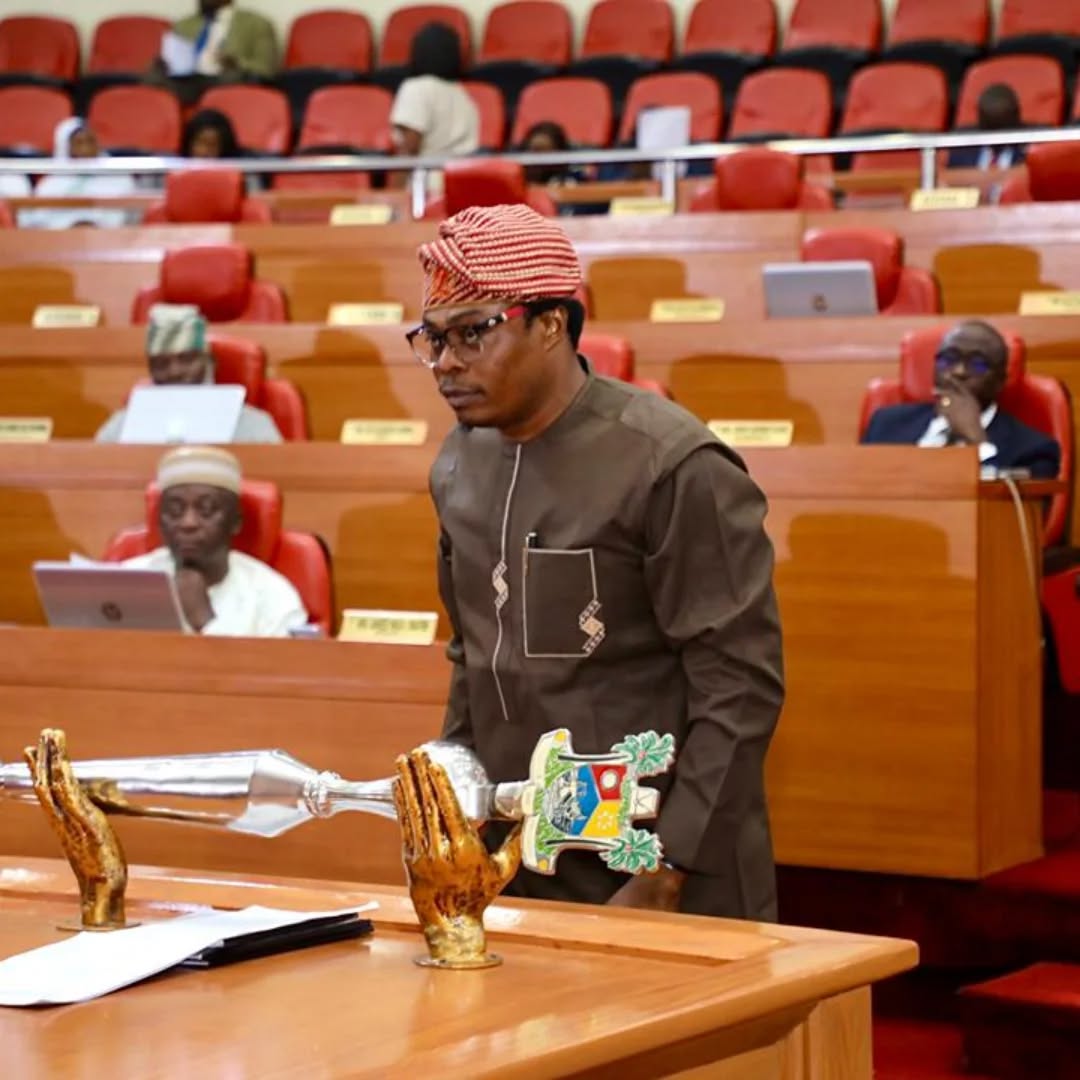
Reviving Traditional Pottery: The Story of Ladi Kwali and Abuja Pottery Center
Nigeria’s artistic heritage is rich and diverse, spanning centuries and representing a myriad of cultural traditions. Among its most iconic art forms is traditional pottery, a craft that has been revived and preserved thanks to the legendary Ladi Kwali and the Abuja Pottery Center. Kwali’s work and legacy have kept Nigeria’s pottery tradition alive, inspiring new generations of artists to connect with their heritage and bring African art to the world stage. Her journey has turned pottery into a celebrated cultural symbol, showcasing the beauty of Nigerian craftsmanship.
Background of Ladi Kwali and Pottery Beginnings
Ladi Kwali, born in 1925 in Kwali village, Nigeria, began learning the art of pottery at an early age. Raised in a community that practiced pottery as a means of daily expression, she quickly became adept at creating intricate designs and perfecting her skill. Over time, her work gained popularity for its beauty and precision, capturing the attention of art enthusiasts across Nigeria. Ladi’s unique approach to pottery combined traditional techniques with her own creative interpretations, resulting in work that transcended regional boundaries and became nationally admired.

The Role of Abuja Pottery Center in Preserving Pottery Art
In the 1950s, British potter Michael Cardew founded the Abuja Pottery Center to promote and preserve traditional Nigerian pottery techniques. Upon discovering Ladi Kwali’s talent, Cardew invited her to work at the center, where she further developed her skills and collaborated with other potters. This partnership allowed Ladi to refine her work, and she became the first Nigerian potter to gain international recognition. Her work at the center played a significant role in turning the Abuja Pottery Center into a renowned institution, promoting Nigerian pottery globally.
Achievements and Recognition
Ladi Kwali’s contributions to pottery earned her widespread recognition, including numerous awards and honors. Some of her notable achievements include:
- Member of the British Empire (MBE): Kwali was awarded this honor in 1962, making her one of the few Nigerian artists to receive international recognition for her contributions to art and culture.
- Exhibitions Worldwide: Her work was exhibited in major cities around the world, including London and New York, showcasing the intricacies of Nigerian pottery and elevating its status as a global art form.
- Legacy in Nigerian Currency: Ladi Kwali’s impact is commemorated on the Nigerian twenty Naira note, symbolizing her importance in Nigerian culture and history.
Challenges and Legacy
Ladi Kwali’s journey was not without challenges, particularly in a time when traditional arts were undervalued. She worked tirelessly to gain recognition and inspire a cultural renaissance for Nigerian pottery. Despite these challenges, her talent and perseverance allowed her to leave a lasting legacy, influencing both contemporary artists and traditional potters. Today, her work continues to inspire a deep appreciation for indigenous art and cultural heritage.
Impact on Nigerian Communities and Art Preservation
Ladi Kwali’s legacy extends far beyond her own pottery. The Abuja Pottery Center, which she helped establish as an artistic landmark, continues to train potters, offering workshops and programs that teach traditional techniques to new generations. Her work has empowered communities by fostering economic opportunities through pottery, encouraging many to embrace pottery as a means of livelihood and cultural expression.
A Vision for the Future of Nigerian Pottery
Today, the Abuja Pottery Center stands as a testament to Ladi Kwali’s vision for Nigerian art. Artists from across Nigeria gather at the center to learn, innovate, and create, ensuring that traditional pottery continues to evolve. The center’s ongoing mission is to preserve indigenous art forms, promote cultural heritage, and inspire future generations to appreciate and explore Nigerian art.
Conclusion
Ladi Kwali’s story and contributions to the Abuja Pottery Center have left an indelible mark on Nigerian culture, elevating pottery to a celebrated art form both locally and internationally. Her work has inspired countless artists and brought Nigeria’s artistic heritage to the world stage. Ladi’s journey reminds us of the power of art to connect us with our roots, inspire future generations, and preserve cultural identity for years to come.




magnificent issues altogether, you simply gained a emblem new reader. What could you suggest in regards to your post that you simply made a few days in the past? Any sure?